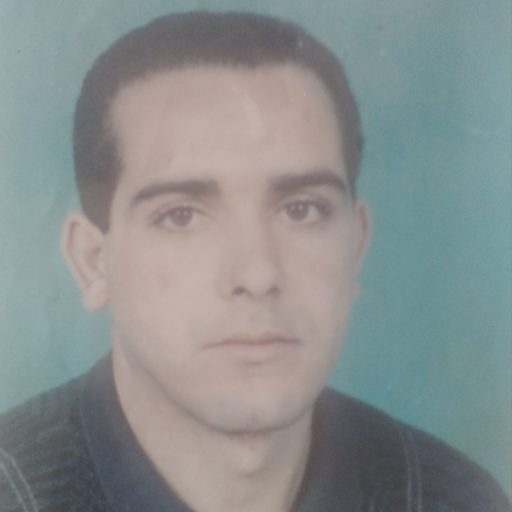
Kamel Djebrouni
Date of arrest: 1994-11-20
Forces responsible: Army
Summary
On November 20, 1994 at 2 a.m., about 15 armed soldiers raided the home of Kamel Djebrouni in Cité Balzac, Sidi M’hamed (Algiers) and arrested him. The soldiers had arrived in army vehicles and a small armoured truck. At first, they went to the wrong door. A neighbour who heard that the soldiers were looking for “Kamel the taxi driver” directed them to the Djebrouni family home. They woke up his mother and her three sons, asked Kamel Djebrouni for his papers and car keys and forced him to accompany them. As Kamel Djebrouni was wearing only a tracksuit and tee-shirt, his mother asked the soldiers to allow him time to dress up. One of the soldiers replied that he would only be gone for a few minutes and that they would soon release him. He remains disappeared since. The only news his family has received dates from February 23, 1995, when one of Djebrouni’s former colleagues went to the family’s home to inform them that a former detainee claimed to have shared a cell with the victim. However, the Djebrouni family was unable to speak to the fellow detainee directly.
Steps taken
November 20, 1994: Kamel Djebrouni’s brother goes to the local police station to obtain information about the arrest.
January 11, 1995: The victim’s brother provides the National Human Rights Observatory with details of the arrest.
December 11, 1995: Amnesty International requests the intervention of the UN Working Group on Enforced or Involuntary Disappearances.
September 12, 1998: Members of the gendarmerie go to the family home in search of the victim and ask his mother to report the following day to the Bab Edjedid gendarmerie with her family civil-status book and two witnesses to the arrest.
September 13, 1998: The author, her son and two witnesses go to the gendarmerie to testify.
June 9, 1999: The National Human Rights Observatory writes to Kamel Djebrouni’s family informing them that efforts to trace him has failed nor is he wanted by the security services or been arrested by them.
July 27, 2004: The National Advisory Commission on the Promotion and Protection of Human Rights, the successor body to the National Human Rights Observatory, writes to the Djebrouni family requesting them to report for an interview at their head office.
August 7, 2004: The family provides the Commission with all the factual elements pertaining to the victim’s abduction. The family has not heard from the Commission since.
February 8, 2008: Having exhausted all domestic remedies, Kamel Djebrouni’s mother seizes the UN Human Rights Committee.
Decision of the Human Rights Committee
Right to life, prohibition of torture and cruel and inhuman treatment (including in relation to the author), right to liberty and security of person, respect for the inherent dignity of the human person, recognition as a person before the law and right to an effective remedy (including in relation to the author).
The State party must provide the author with an effective remedy, including by (a) conducting a thorough and effective investigation into the disappearance of Kamel Djebrouni; (b) providing the author with detailed information about the results of the investigation; (c) freeing him immediately if he is still being detained incommunicado; (d) if he is dead, handing over his remains to his family; (e) prosecuting, trying and punishing those responsible for the violations committed; and (f) providing adequate compensation for the author for the violations suffered and for Kamel Djebrouni if he is alive. Notwithstanding Ordinance No. 06-01, the State party should ensure that it does not impede enjoyment of the right to an effective remedy for the victims of crimes such as torture, extrajudicial killings and enforced disappearance. The State party is also under an obligation to take steps to prevent similar violations in the future.




